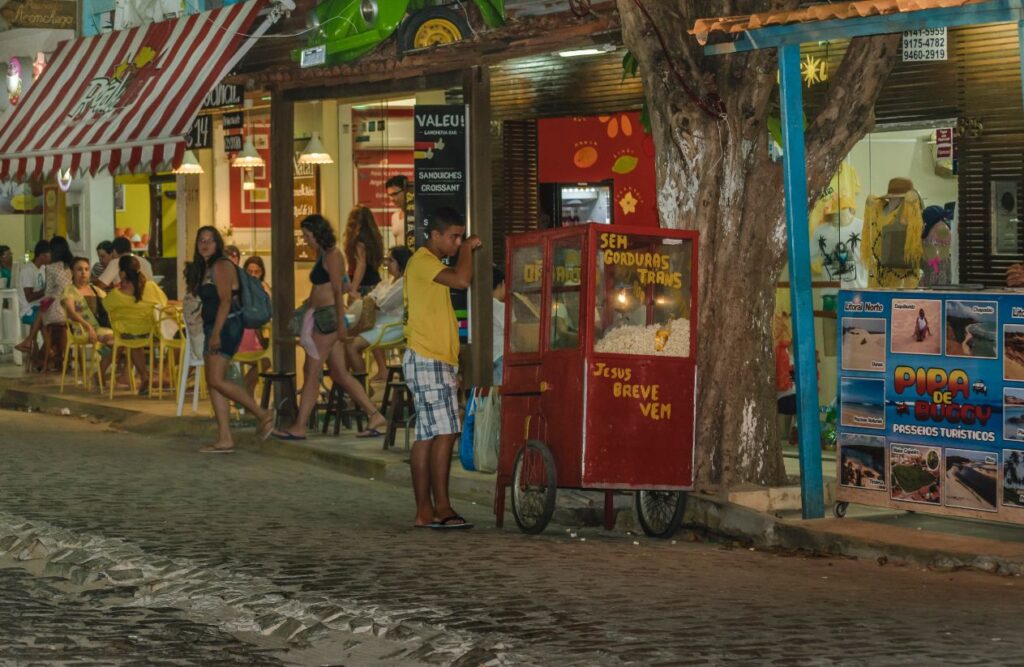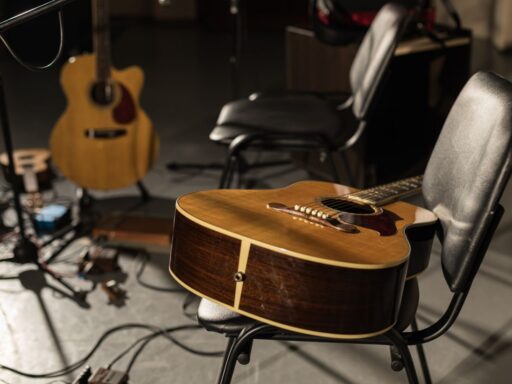Imagine standing on a massive stage, the energy of thousands of fans pulsating through you as the summer sunsets.
For countless artists, this dream becomes a reality at summer festivals, catapulting their careers to new heights. One emerging indie band, after a breakout performance at a regional festival, saw their streaming numbers triple overnight, proving the sheer power of these gigs.
Summer festival gigs aren’t just performances; they’re career-defining moments, offering unparalleled exposure, networking opportunities, and the chance to connect with a diverse audience.
This guide provides actionable steps to navigate the competitive festival scene, transforming your aspirations into booked performances.
We’ll explore everything from crafting a standout artist profile to mastering the art of the perfect pitch, ensuring you’re well-equipped to land that coveted summer festival gig and ignite your musical journey.
Understanding the Summer Festival Landscape

The Allure of Summer Festivals
Imagine the electric hum of anticipation as the crowd gathers, the sun warming their faces, and the air thick with the promise of unforgettable music.
Summer festivals are more than just concerts; they’re vibrant, immersive experiences. For artists, they represent a golden opportunity. Beyond the immediate thrill of performing, festivals offer unparalleled exposure.
Picture your music reaching thousands of new ears, fans discovering your sound amidst the festival’s unique atmosphere. Networking opportunities abound, connecting you with fellow artists, industry professionals, and potential collaborators.
Moreover, festivals can significantly boost revenue, providing a substantial financial injection and fueling further creative endeavors. These events are a powerful catalyst, propelling careers forward and solidifying an artist’s presence in the music scene.
Types of Festivals: Finding Your Perfect Fit
The festival landscape is remarkably diverse, catering to a wide array of artistic styles and audience preferences.
Understanding this diversity is crucial for any artist aiming to secure a coveted summer festival gig. Music festivals, the most prevalent, range from genre-specific events like Coachella (indie and alternative) and Glastonbury (eclectic mix) to large-scale EDM festivals like Tomorrowland.
Arts festivals, such as the Edinburgh Festival Fringe, showcase a variety of performances, including theater, comedy, and spoken word.
Niche festivals, like folk or jazz festivals, attract dedicated audiences with specific musical tastes. Consider the size and target audience of each festival.
A small, intimate festival might be perfect for an emerging folk artist, while a large-scale music festival could provide the ideal platform for an established rock band.
Aligning your artistic brand with the festival’s ethos ensures a symbiotic relationship, enhancing both your performance and the festival experience.
The Festival Booking Cycle: Timing is Everything
The festival booking cycle operates on a strict timeline, often months in advance. Many festivals begin accepting applications in the fall or winter for summer events.
Understanding these deadlines is paramount. Festival organizers typically have a rigorous selection process, reviewing artist profiles, music samples, and live performance footage.
Proactive planning is essential. Create a festival calendar, noting application deadlines and submission requirements.
Develop a comprehensive EPK (Electronic Press Kit) that showcases your best work. Start networking early, attending industry events and connecting with festival organizers.
Stay organized, maintain consistent communication, and be prepared to act quickly when opportunities arise. Remember, securing a summer festival gig requires not just talent but also meticulous planning and timely action.
You can also read our article about “Indie Musicians: Master Brand Building with Sonicbids Guide”
Crafting a Killer Artist Profile

Your Artist Profile: First Impressions Matter
In the competitive arena of summer festival bookings, your artist profile serves as your digital handshake, your introduction before you even step on stage.
It’s more than a mere biography; it’s a dynamic marketing tool designed to capture the attention of festival organizers inundated with applications.
Think of it as your artistic resume, a meticulously curated showcase of your talent, professionalism, and unique artistic identity.
This profile is your opportunity to demonstrate why you deserve a coveted spot in their lineup, proving you’re not just another act, but a memorable experience waiting to happen.
Key Elements of a Standout Profile
- Compelling Biography:
- Move beyond the standard list of achievements. Craft a narrative that draws the reader in, sharing the story behind your music. Infuse your personality and passion into the writing, making it relatable and engaging. Use vivid language to paint a picture of your artistic journey and the emotions your music evokes.
- High-Quality Visuals:
- Invest in professional photos and videos that reflect your brand and stage presence. Ensure consistency in your visual branding across all platforms. These visuals are your first impression, conveying your style and professionalism before organizers even listen to your music.
- Audio and Video Samples:
- Select your best tracks and live performance footage to showcase your talent and stage presence. High-quality audio and video are essential for organizers to get a true sense of your music and performance style. Highlight your ability to engage an audience and create a memorable experience.
- Unique Selling Proposition (USP):
- Clearly articulate what sets you apart from other artists. Is it your genre-bending sound, your electrifying live performances, or your unique stage presence? Provide concrete examples and evidence to support your USP, making it impossible for organizers to overlook your potential impact.
- Social Proof and Achievements:
- Leverage past gigs, awards, press mentions, and social media statistics to build credibility. These achievements demonstrate your experience and ability to attract a crowd, assuring organizers of your professionalism and potential impact.
Profile Presentation and Accessibility
- Ensure your profile is well-organized and easy to navigate. Create an EPK (Electronic Press Kit) that provides a comprehensive overview of your work, including all essential elements. Make sure your website and social media platforms are up to date and integrated, providing easy access to your profile and music. This attention to detail demonstrates your professionalism and makes it easier for organizers to assess your suitability for their festival.
Networking and Building Relationships

The Power of Networking in the Festival Scene
In the pursuit of a coveted summer festival gig, networking transcends mere contact collection; it’s about cultivating genuine relationships. Within the vibrant festival scene, connections are the lifeblood of opportunity.
Building rapport with organizers, fellow artists, and industry professionals can open doors that remain closed to those who solely rely on talent.
It’s about creating a network of mutual respect and shared passion, laying the groundwork for collaborations and future opportunities.
Effective Networking Strategies
- Research and Preparation:
- Begin by thoroughly researching the festivals you aspire to play. Understand their ethos, target audience, and past lineups. Delve into the backgrounds of the organizers, noting their preferences and interests. Tailor your communication to demonstrate your genuine interest and alignment with their vision.
- Making the First Connection:
- Craft introductions that are professional yet memorable. Utilize email, social media, and, when possible, in-person interactions to initiate contact. Share your EPK and performance reels, providing a compelling snapshot of your talent. Be concise, courteous, and highlight the unique value you bring.
- Maintaining Engagement:
- Follow up with personalized messages, expressing continued interest and offering ways to add value. Stay in touch with updates on your projects and congratulate organizers on their successes. Consistent, respectful communication is key to nurturing these relationships.
- Attending Industry Events:
- Maximize face-to-face networking opportunities by attending conferences, showcases, and festival launch parties. These events provide invaluable platforms for meeting organizers and fellow artists, fostering genuine connections and gaining industry insights.
Long-Term Relationship Building
Nurture your connections beyond single-event interactions. Cultivate long-term relationships that pave the way for future collaborations and opportunities.
Maintain professionalism and reliability, demonstrating your commitment to delivering exceptional performances and being a valuable member of the festival community. These relationships are the foundation for sustained success in the festival circuit.
Crafting the Perfect Pitch

The Art of the Pitch: Making a Lasting Impression
Think of your pitch as a compelling sales proposal, not just a casual inquiry. It’s your opportunity to captivate festival bookers, demonstrating why your act is the perfect addition to their lineup.
In a sea of applications, a well-crafted pitch can be the deciding factor in securing those coveted festival slots. This is your chance to showcase your unique value and leave a lasting impression.
Essential Elements of a Winning Pitch
- Personalized Approach:
- Immerse yourself in the festival’s world. Research their history, past lineups, and overall vibe. Tailor your pitch to reflect your understanding of their audience and artistic vision. Demonstrate genuine enthusiasm for their event and explain why you’re a perfect fit.
- Compelling Storytelling:
- Craft a narrative that draws the reader in, sharing your artistic journey and the impact of your music. Use vivid language and imagery to paint a picture of your live performance, showcasing the energy and emotion you bring to the stage.
- Highlighting Your USP:
- Clearly and concisely communicate what sets you apart. Is it your genre-bending sound, your electrifying stage presence, or your unique ability to connect with audiences? Provide concrete examples and evidence to support your claims, making it impossible for organizers to overlook your potential.
- Professional Presentation:
- Ensure your pitch is clear, concise, and error-free. Use a professional tone and format, making it easy for organizers to quickly grasp your message. Attention to detail demonstrates your professionalism and commitment to excellence.
- Strong Call to Action:
- Clearly state your desired outcome, whether it’s a booking inquiry or a request for a meeting. Provide clear next steps, making it easy for organizers to respond and move forward in the process.
Pitch Formats and Channels
- Email Pitches: Craft compelling email pitches that are personalized and concise, including links to your EPK and performance reels.
- EPK Integration: Ensure your EPK is well-organized and easy to navigate, providing a comprehensive overview of your work.
- In-Person Pitches: When possible, leverage in-person networking opportunities to deliver your pitch directly to organizers, building rapport and making a memorable impression.
Overcoming Booking Challenges
Common Obstacles in Landing Festival Gigs
The journey to securing festival gigs is rarely without its hurdles. Artists frequently encounter fierce competition, facing numerous talented peers vying for limited slots. Rejection is a common experience, demanding resilience and a thick skin.
Negotiation can also be daunting, requiring artists to navigate contracts and fees. Logistical challenges, such as travel, equipment, and accommodation, add another layer of complexity.
Strategies for Overcoming Challenges
Persistence and resilience are paramount. View rejections as learning opportunities, seeking feedback to refine your approach.
Continuous improvement is essential; invest in your craft and stage presence. Develop strong negotiation skills, understanding your value and advocating for fair terms.
Build a robust support network of fellow artists, mentors, and industry professionals. Their guidance and encouragement can be invaluable.
Related Content: How to Land Gigs at Colleges and Universities
Conclusion
Landing a coveted summer festival gig is an achievable dream, not a distant fantasy. It demands a blend of artistic talent, strategic planning, and relentless perseverance.
By understanding the festival landscape, crafting a compelling artist profile, and mastering the art of networking and pitching, you dramatically increase your chances of success. Remember, each interaction, each pitch, and each performance builds your reputation and opens new doors.
Embrace the challenges, learn from rejections, and persistently refine your craft. Let your passion fuel your journey, and never underestimate the power of genuine connections.
Your dedication will resonate with festival organizers, transforming your aspiration into a thrilling reality. To further assist you on your path, download our comprehensive checklist, and subscribe to our newsletter for the latest industry insights. Let your music fill the summer air.
Summer Festival Gig- FAQ Section
Navigating the process of booking gigs, especially for summer festivals, can present a myriad of challenges even for the most seasoned artists.
The competition is fierce, and the logistics can be complex. Here are some frequently asked questions that dive into the common hurdles you might face and offer practical advice to help you secure those coveted spots on the festival stage.
How do I stand out when there are so many artists applying for the same festival slots?
Focus on your unique selling proposition (USP). What makes your act different? Highlight this in your EPK and pitch. Use high-quality visuals and compelling storytelling to capture attention. Consider targeting festivals that align with your specific genre or style. For example, if you’re a folk artist, look for smaller, niche festivals where your sound will resonate more strongly.
I keep getting rejected. How can I turn this around?
Don’t take rejection personally. Ask for feedback, even if it’s just a brief comment. Use this feedback to improve your EPK, pitch, and live performance. Analyze successful artists in your genre and see what they’re doing right. Additionally, consider building your online presence and engage with your fans on social media. A strong following can make you more attractive to festival organizers.
How do I negotiate fair fees and contract terms?
Research industry standards for artists in your genre and experience level. Don’t be afraid to advocate for yourself, but also be willing to compromise. Have a lawyer review any contracts before signing. Network with other artists to learn about their experiences and negotiation strategies.
What are some common logistical challenges, and how can I prepare for them?
Travel, equipment transportation, and accommodation are common challenges. Create a detailed checklist of your needs and start planning early. Research travel options and book accommodations well in advance. Consider renting equipment locally to reduce transportation costs. Build a strong rapport with festival organizers, so they are more willing to assist with logistical issues.
Post high-quality content that showcases your talent and stage presence. Engage with your fans and build a strong online community. Follow festival organizers and industry professionals on social media and interact with their content. Use relevant hashtags and participate in online discussions. Consider running targeted social media ads to reach festival organizers and potential fans.






